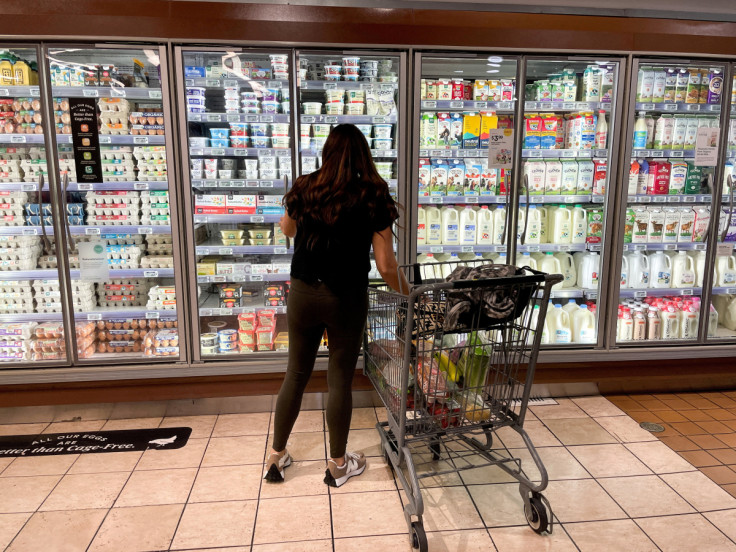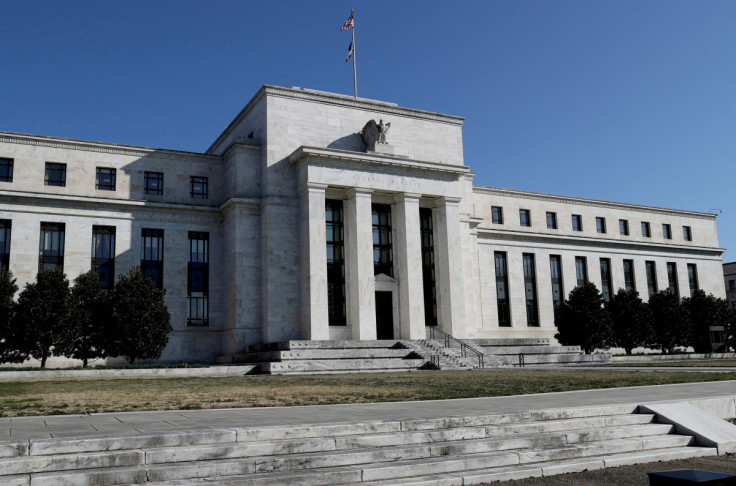US Expected To Report Strong Consumer Price Increases In February

U.S. consumer prices likely rose at a solid pace in February amid sticky rental housing costs, but economists are divided on whether the data will be enough to push the Federal Reserve to hike interest rates again next week after the failure of two regional banks.
The report from the Labor Department on Tuesday, which is also expected to show goods inflation picked up in part due to an anticipated rebound in prices of used motor vehicles, will be published amid financial market turmoil triggered by the collapse of Silicon Valley Bank in California and Signature Bank in New York, which forced regulators to take emergency measures to shore up confidence in the banking system.
It will also be released a week before the Fed begins a two-day policy meeting, and follow on the heels of a report last Friday showing a still-tight labor market, but cooling wage inflation. Economists said Tuesday's report remained important for policymakers despite the angst in financial markets.
"If the Fed meeting was today, then you'd have to say the Fed is not going to do anything," said James Knightley, chief international economist at ING in New York. "If the actions from the Fed, Treasury and the FDIC (Federal Deposit Insurance Corporation) help to calm markets, then you'd have to say that a 25-basis-point hike is still the most likely outcome."
The Consumer Price Index (CPI) likely increased by 0.4% last month after accelerating 0.5% in January, according to a Reuters survey of economists. That would lower the year-on-year increase in the CPI to 6.0% in February, which would mark the smallest year-on-year rise since September 2021. The CPI rose at a 6.4% pace in the 12 months through January.
The annual CPI peaked at 9.1% in June, which was the biggest increase since November 1981. Monthly inflation is rising at double the rate that economists say is needed to bring inflation back to the Fed's 2% target.
Fed Chair Jerome Powell told lawmakers last week that the U.S. central bank would likely need to raise rates more than expected, leading financial markets to expect that a half-percentage-point rate increase was on the table next week.
But those expectations were dialed back to 25 basis points after the employment report.
While financial markets on Monday still expected a quarter-percentage-point hike, according to CME Group's FedWatch tool, fear of contagion from the banking crisis prompted some economists, including those at Goldman Sachs, to expect the Fed next week to pause its fastest monetary policy tightening cycle since the 1980s.
"It should be noted that these problems (at smaller banks) were largely set up by over-easy Fed policy for many years and are now being triggered by excessive tightening," said David Kelly, chief global strategist at JPMorgan Funds in New York. "In light of this reality, it is possible that the Fed will now halt its tightening cycle."
The Fed has increased its benchmark overnight interest rate by 450 basis points since last March from the near-zero level to the current 4.50%-4.75% range.
STICKY RENTS
Consumer inflation last month was largely pushed by stubbornly high rents. Food prices are expected to have risen moderately after climbing 0.5% in January. Gasoline prices likely increased, but overall energy prices probably eased slightly because of a decrease in the cost of energy services.
Excluding the volatile food and energy components, the CPI is forecast to have increased 0.4% for a third straight month. Another solid rise in owners' equivalent rent (OER), a measure of the amount homeowners would pay to rent or would earn from renting their property, is expected to have been the main driver of the increase in the so-called core CPI. OER advanced 0.7% in January.
Independent measures, however, suggest rental inflation is cooling, leading many economists to believe that price pressures could decelerate considerably in the second half of the year. The rent measures in the CPI tend to lag the independent gauges.
Increases are also expected in the cost of hotel and motel rooms. With rents remaining hot, services less energy, probably recorded another month of strong price gains after rising 0.5% in January. Fed officials are closely watching the prices of services outside housing and energy, to gauge their progress in taming inflation. According to economists' calculations, core services prices excluding housing rose 0.4% in February.
Upward pressure on core inflation is also expected to come from goods, with prices of used cars and trucks expected to have rebounded in February after declining for seven straight months. Core goods prices are forecast to have risen further after increasing in January for the first time since August.
In the 12 months through February, the core CPI is forecast to have gained 5.5%. That would be the smallest increase since December 2021 and would follow a 5.6% advance in January.
Given that inflation is far from subsiding and the labor market is still tight, some economists expect the Fed to press ahead with its rate hiking campaign.
"Doing so (pausing) would invite markets and the public to assume that the Fed's inflation-fighting resolve is only in place up to the point when there is any bumpiness in financial markets or the real economy," said Andrew Hollenhorst, chief U.S. economist at Citigroup in New York.

© Copyright Thomson Reuters 2024. All rights reserved.




















